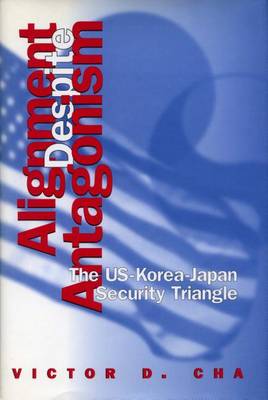Studies of the East Asian Institute, Columbia University
1 total work
Japan and the Republic of Korea (ROK) have been two of the most critical pillars of peace, stability, and prosperity in the Asia-Pacific region for the past thirty years. At the same time, their relationship has fluctuated markedly and unpredictably. Despite the existence of a common ally in the United States and common security threats from the former Soviet Union, China, and North Korea, bilateral relations between Japan and South Korea have been persistently marred by friction. In the first in-depth study of this puzzling relationship in over fifteen years, the author compares the commonly accepted explanation for this relationship historical enmity with one that focuses on policies of the United States as the key driver of Japan-ROK relations. He finds that while history and emotion certainly affect the ways in which Japanese and Koreans regard each other, cooperation and dissension in the relationship are better understood through what he calls a quasi-alliance model: two states that remain unallied but have a third party as a common ally.
